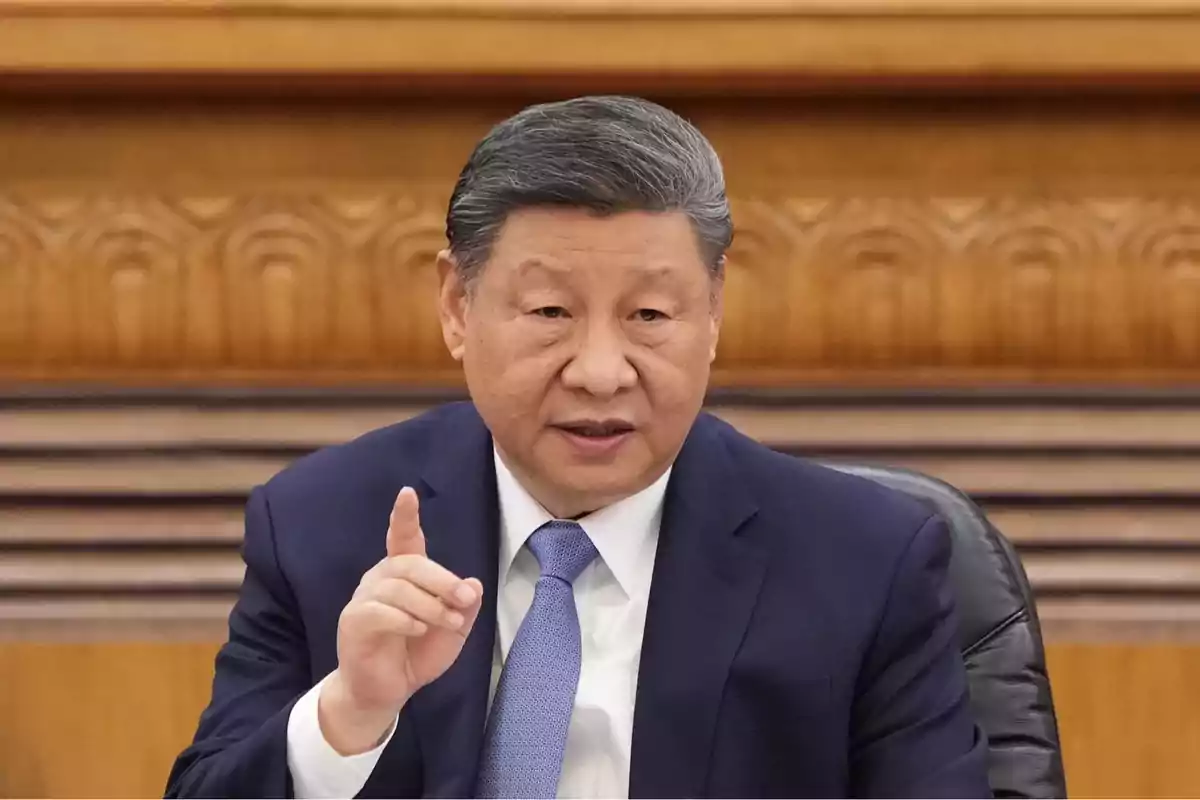
China intensifies the trade war with a new 84% tariff
Xi Jinping's government announced it will apply import duties of 84% on American products in another provocation
China has replied to the tariff policies of the United States president, Donald Trump, by increasing its tariffs on U.S. imports to 84%, leading both powers into a full-blown trade war.
Starting April 10, tariffs on U.S. products entering Chinawill rise from 34% to 84%, as part of a retaliatory measure for the 104% tariff increase that the United States imposed on Chinese products starting at midnight due to the high tariffs imposed by China.
This tariff increase is part of an escalation in the trade war between the world's two largest economies.
According to the United States Trade Representative's Office, in 2024, the value of U.S. exports to China was USD 143.5 billion, while imports from China reached USD 438.9 billion.
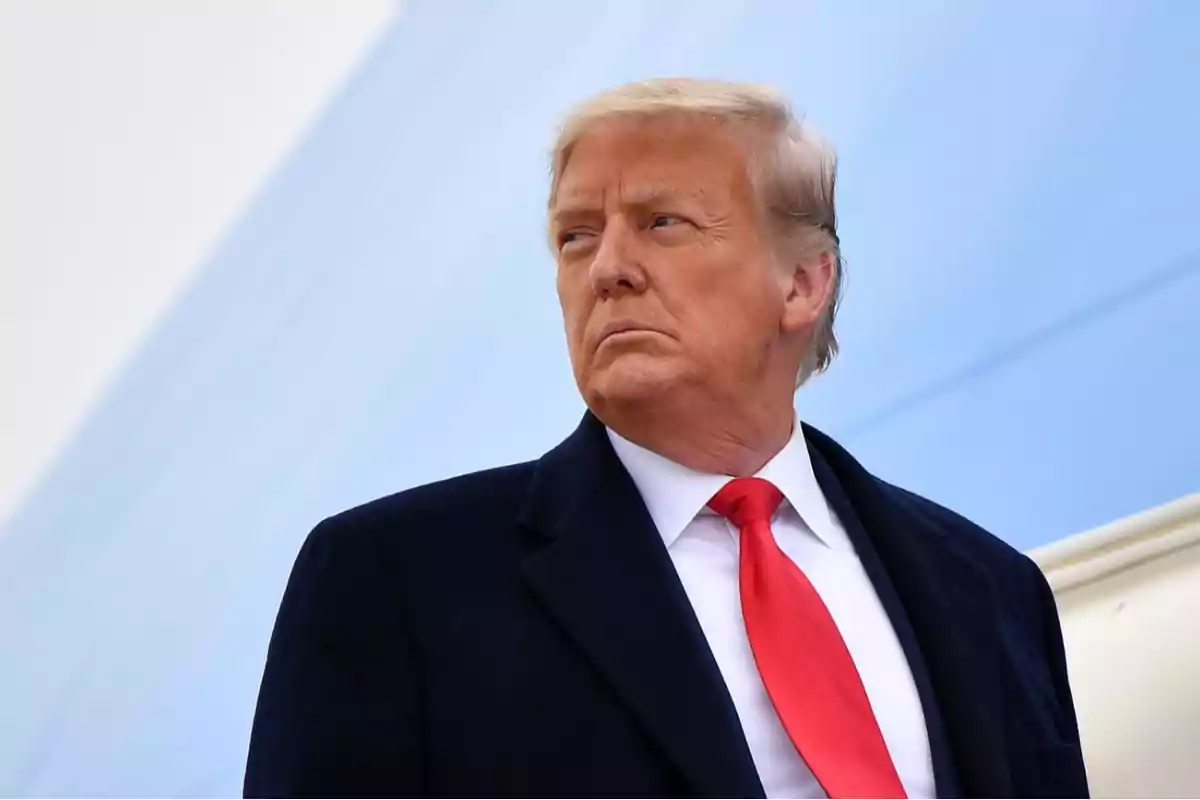
The Trump administration launched a new tariff policy last week, warning other countries not to apply retaliatory measures. Meanwhile, some countries, like Japan, have shown willingness to negotiate on tariffs, China has taken a more belligerent stance and quickly announced a retaliatory tariff.
After China's initial response to the implementation of tariffs on April 2, Trump announced an additional 50% increase, raising the total tariffs on Chinese products to 104%.
The United States Treasury Secretary, Scott Bessent, criticized China following its latest move and stated that the Asian nation has "the most unbalanced economy in modern history" and that the tariff escalation will be detrimental to them.
Bessent also stated that China's unwillingness to negotiate is unfortunate, as he considers them "the worst offenders in the international trade system."
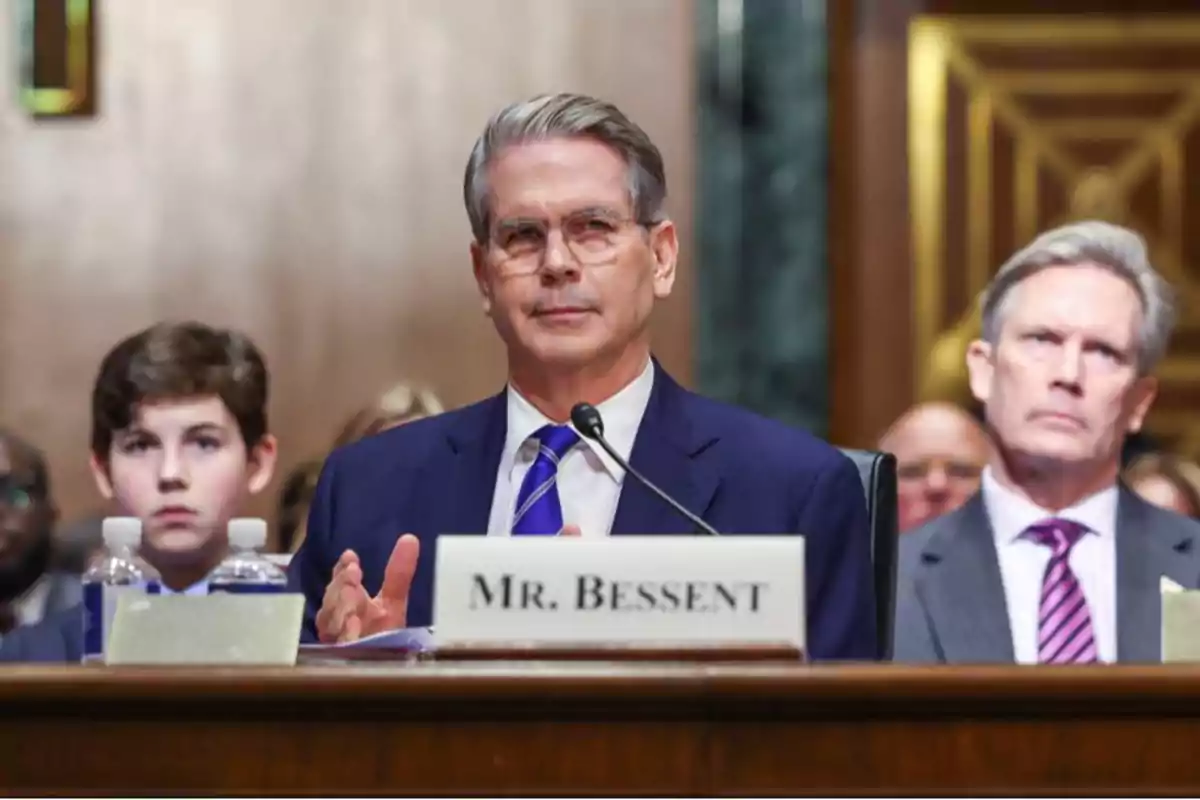
Before the full implementation of this new trade policy in April, the United States had already imposed additional tariffs on China. China, along with Canada and Mexico, had been subject to new tariffs at the start of Trump's second term, as part of the administration's efforts to prevent fentanyl from entering the United States.
The origin of the tariffs imposed on China, however, stems from the significant trade barriers that the Asian giant has against the United States, which increased the cost of U.S. products by 67%. Additionally, the large trade deficit that the United States has with China was another factor for the imposition of tariffs.
The trade war has caused nervousness among investors globally, increasing the likelihood of slower economic growth, higher inflation, and lower corporate profits, which triggered a sharp drop in financial markets during April.
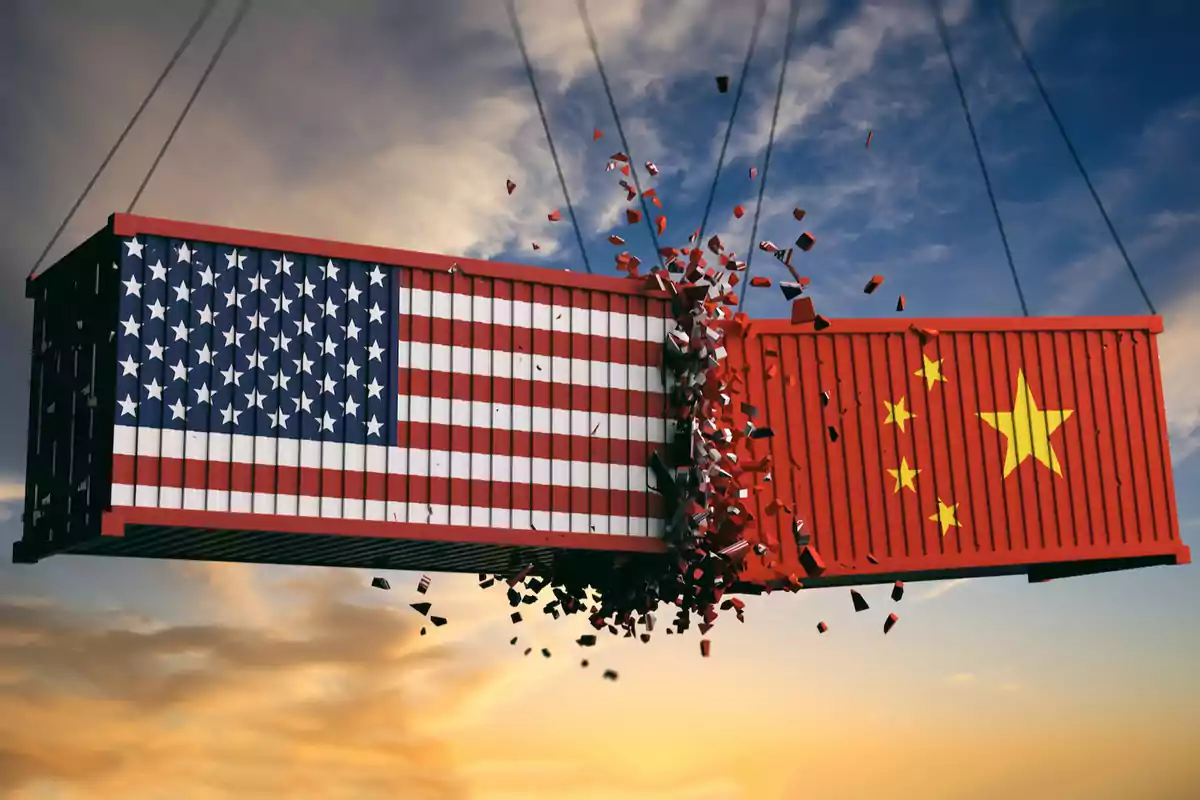
The S&P 500 closed on Tuesday with a drop of nearly 20% from its peak, placing the index in a bear market. The Kospi index of South Korea also entered a bear market on Wednesday, while stocks in Shanghai and Hong Kong have also experienced sharp declines since the announcement of U.S. tariffs on April 2.
China, meanwhile, has expressed its determination to face the economic and trade restrictions imposed by the United States with retaliatory measures on U.S. imports. Additionally, Xi Jinping's regime showed reluctance to negotiate after President Trump offered them significant trade benefits.
In a statement, China's Ministry of Commerce declared that "if the United States insists on continuing to escalate economic and trade restrictions, China has the firm will and sufficient means to take the necessary countermeasures and fight to the end."
The escalation intensified last week when Trump announced a 34% tariff in retaliation for the tariffs previously imposed by China on U.S. products.
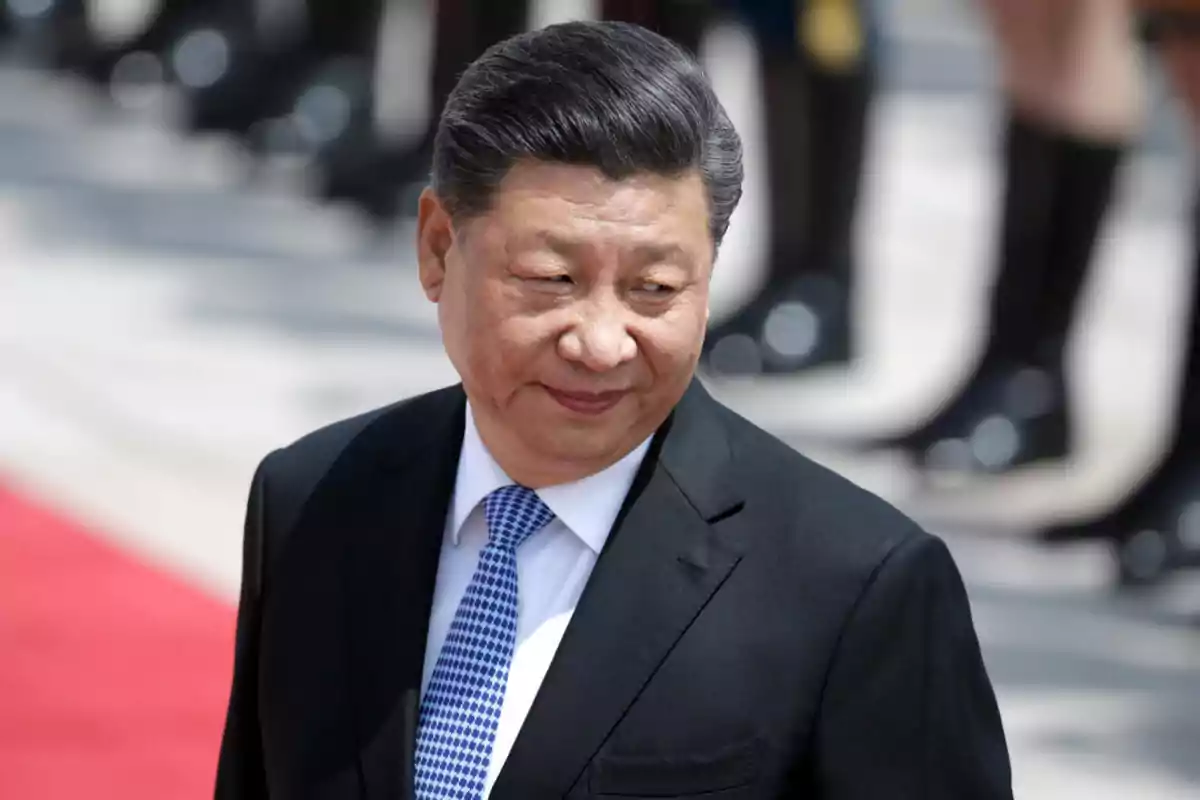
China replied with a tariff of the same percentage, leading to a rapid intensification of the trade conflict. The White House Press Secretary, Karoline Leavitt, stated on Tuesday that, since China did not lift its retaliatory tariff, Trump imposed an additional 50% tariff.
This raises the total tariffs on Chinese products to 104%, in addition to the previously applied tariffs of 20% and 34%.
Leavitt insisted that "all options are on the table for every country" regarding tariff negotiations, but warned that those who applied retaliatory measures should be aware that Trump has "a spine of steel" and will not yield to pressure.
The Press Secretary highlighted that, since Trump's tariff announcements, 70 countries have already contacted the president to begin negotiations, suggesting that many are willing to discuss agreements, while China, by opting for retaliation, is making a "mistake."
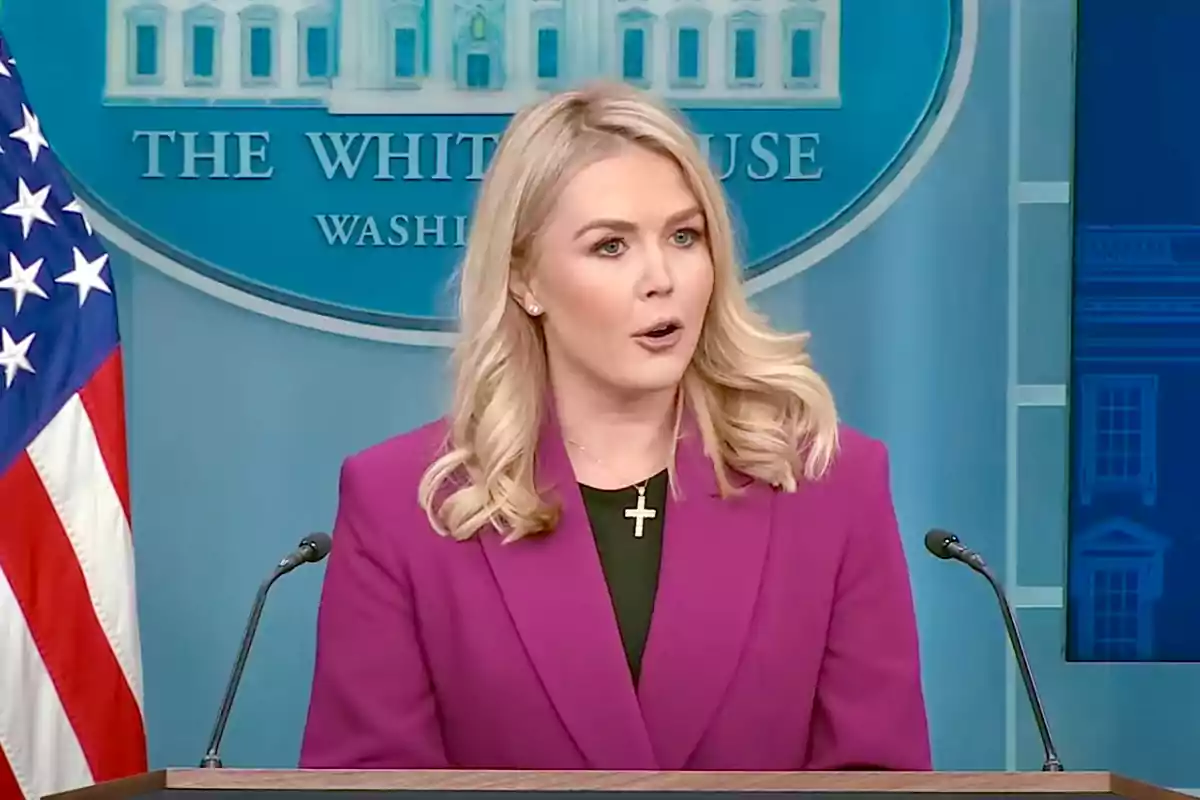
More posts: